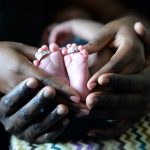Teaching children to understand other people’s perspectives may make it easier for children to learn to forgive others study has found. Also, it was found that teaching children to sincerely apologize can help them receive forgiveness from others.
Forgiveness is a key skill to help kids/children learn other people’s perspectives.
A study by Kelly Lynn Mulvey, a lead author and an associate of psychology at North Carolina State University states that forgiveness is important in children and adults restoring relationships and limiting future conflict, but what makes kids more forgiving, especially from childhood to adolescence is not quite known yet.
In the study, 185 children were enrolled from the ages of 5 to 14. An in-depth interview was conducted with each child that collected background information and assessed the child’s “theory of mind” skills. Theory of mind is your ability to understand that someone else’s beliefs, intentions, and desires are different from yours.
Then each child is walked through a series of scenarios involving other children who are “in-group” and “out-group.” Each study participant was informed that they were part of a group, such as the green team. During the interviews, the researchers described some children in the scenarios as part of the green team (making them in-group), while other children in the scenarios were part of the yellow team (making them out-group).
In each scenario, investigators asked study participants if they were willing to forgive a group that had excluded them from a game or activity.
Three main conclusions deduced from the research include first, children are more likely to forgive someone if they apologized.
Second, children are more likely to forgive people who are in a group.
The last is, the more advanced a child’s theory of mind skills, the more likely they are to forgive others. It was discovered that children have sophisticated abilities to forgive others and children are able to re-establish relationships with others and are generally interested in doing so.
Researchers identified two things parents and teachers may want to focus on when it comes to forgiveness. One is to help children understand how important it is to expressively convey an apology.
Children are able to sense insincere excuses, and hypocritical apologies have not been helpful in encouraging forgiveness. The apology should make it clear that someone understands why what they did was wrong. This will result in making other kids more likely to give them a second chance.
The second area of concern is helping kids to understand the point of view of others, even if they are different from you. One of the biggest implications of the study is that teachers and parents should actively help children cultivate their theory of mind skills.
A good place to start is to ask the children to explain the motive behind their actions and how that might make others feel. Helping young people develop these skills in childhood will help them navigate a diverse and complex world.





